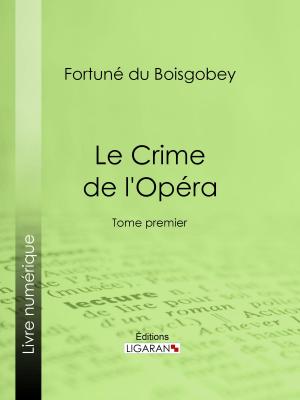| Author: | Donna Leon | ISBN: | 9781555848996 |
| Publisher: | Grove/Atlantic, Inc. | Publication: | December 1, 2007 |
| Imprint: | Atlantic Monthly Press | Language: | English |
| Author: | Donna Leon |
| ISBN: | 9781555848996 |
| Publisher: | Grove/Atlantic, Inc. |
| Publication: | December 1, 2007 |
| Imprint: | Atlantic Monthly Press |
| Language: | English |
As the novel opens, a doctor arrives at the apartment of Maria Grazia Battestini, an elderly shut-in who is hated by everyone around her (including her only surviving relative, her neice) for her miserly, spiteful ways. The doctor dreads his task of visiting her once a week, since she is always complaining about her Romanian illegal-immigrant housekeeper etc. But on this visit the doctor finds Battestini brutally murdered, having been struck by a blunt object in the skull. He immediately reports the murder to the police and the second Lieutenant Scarpa hears that the old lady had a Romanian housekeeper, they assume she was the murderer. He has his men check all of the trains leaving the city and sure enough, the housekeeper, whose name is Flori, is found on the train with a purse containing 600 euros. While she is being questioned by Scarpa's arrogant men, however, she fleas, only to be struck by a train on the opposite track. Scarpa, satisfied that Flori murdered Battestini, decides not to pursue any other suspects.
Weeks later, the old lady's neighbor, Signora Gismondi, returns from a trip to London to discover that the old lady is dead and the housekeeper was named the murderer. She calls the police to plead otherwise: on the day of the murder, the housekeeper had been fired and locked out of her house by the old lady, upon which Signora Gismondi had given her some money and offered to take her to the train station so that she could return to her native Romania. Gismondi had personally driven the housekeeper to the station, and had dropped her off there in a calm state, meaning it was unlikely that she committed the
murder before leaving to Romania.
Scarpa, however, is convinced that Signora Gismondi is lying. Like most of his colleagues, he is a lazy, distrustful, unimaginative police officer who wants to find the easiest solution rather than truly investigating. On the other hand, Commissario Guido Brunetti believes that the woman is telling the truth. He realizes that although he is not assigned to the case, it is his duty to follow through with the woman's tip and find the real killer.
After questioning Gismondi, Brunetti searches Battestini's apartmenting, finding among her papers an odd one that seems to be written in code. He takes it back to the office and someone realizes it is a list of bank account numbers. Signorina Elettra, a desk worker who used to work at a bank and is an expert in computer hacking, examines the accounts and discovers that someone had been depositing a fixed monthly amount into each of the right up until the day after the woman's death, when an unknown person consolidated all the accounts and moved them to an offshore account.
Commissario Brunetti questions Battestini's lawyer, the woman who was encharged with all of her affairs. She confesses that she was the one who moved the accounts offshore, but that Signora Battestini never told her the source of the payments.
In questioning people, Brunetti learns more about Battestini's son, who died five years earlier. Rumors circulate that he was gay and died of AIDS. Battestini's mail carrier reveals that once she was delivering his mail and a pornographic magazine depicting adolescent boys slipped out of its bag. Brunetti also learns that the son worked for the school board. Meanwhile Battestini's doctor reveals that he once heard Battestini brag that her son took very good care of her. Brunetti begins to wonder if perhaps the son was responsible for the deposits in Battestini's accounts.
Brunetti begins to suspect that the son was blackmailing someone involved with the board of education, where he used to work. So he interviews the director of the board of ed, Signor Rossi. Signor Rossi says he didn't really know the son, but Brunetti suspects he is lying. Brunetti returns to Battestini's old apartment (where she was murdered) and when he looks in the attic, he finds that it has been ransacked. Someone has come here looking for something. Accidentally, he breaks a statue of the Madonna and inside of it he finds a piece of paper. It is a letter from Signor Rossi (the board of ed director)'s old school saying that they have no record of him every having received a doctorate there. Suddenly, Brunetti puts it all together: Battestini's son, when he was an assistant at the board of ed and Signor Rossi applied for the job there, received this letter and rather than taking it to his superior, decided to blackmail Signor Rossi. Signor Rossi had been paying Battestini off ever since. When Battestini found out that Signor Rossi was angling for a promotion, she decided to invite him to her house to ask him for more money. He couldn't afford it, and she threatened to go public with the information that he was a fraud. He became enraged and killed her.
In the last scene, Brunetti forces Rossi to confess. Because of the quirks of the Italian legal system, he will probably not have to serve much time, and so Bruneeeeeetti, though he is not religious, tries to console himself in the assurance of his wife that a higher power will sort it out in the end.
As the novel opens, a doctor arrives at the apartment of Maria Grazia Battestini, an elderly shut-in who is hated by everyone around her (including her only surviving relative, her neice) for her miserly, spiteful ways. The doctor dreads his task of visiting her once a week, since she is always complaining about her Romanian illegal-immigrant housekeeper etc. But on this visit the doctor finds Battestini brutally murdered, having been struck by a blunt object in the skull. He immediately reports the murder to the police and the second Lieutenant Scarpa hears that the old lady had a Romanian housekeeper, they assume she was the murderer. He has his men check all of the trains leaving the city and sure enough, the housekeeper, whose name is Flori, is found on the train with a purse containing 600 euros. While she is being questioned by Scarpa's arrogant men, however, she fleas, only to be struck by a train on the opposite track. Scarpa, satisfied that Flori murdered Battestini, decides not to pursue any other suspects.
Weeks later, the old lady's neighbor, Signora Gismondi, returns from a trip to London to discover that the old lady is dead and the housekeeper was named the murderer. She calls the police to plead otherwise: on the day of the murder, the housekeeper had been fired and locked out of her house by the old lady, upon which Signora Gismondi had given her some money and offered to take her to the train station so that she could return to her native Romania. Gismondi had personally driven the housekeeper to the station, and had dropped her off there in a calm state, meaning it was unlikely that she committed the
murder before leaving to Romania.
Scarpa, however, is convinced that Signora Gismondi is lying. Like most of his colleagues, he is a lazy, distrustful, unimaginative police officer who wants to find the easiest solution rather than truly investigating. On the other hand, Commissario Guido Brunetti believes that the woman is telling the truth. He realizes that although he is not assigned to the case, it is his duty to follow through with the woman's tip and find the real killer.
After questioning Gismondi, Brunetti searches Battestini's apartmenting, finding among her papers an odd one that seems to be written in code. He takes it back to the office and someone realizes it is a list of bank account numbers. Signorina Elettra, a desk worker who used to work at a bank and is an expert in computer hacking, examines the accounts and discovers that someone had been depositing a fixed monthly amount into each of the right up until the day after the woman's death, when an unknown person consolidated all the accounts and moved them to an offshore account.
Commissario Brunetti questions Battestini's lawyer, the woman who was encharged with all of her affairs. She confesses that she was the one who moved the accounts offshore, but that Signora Battestini never told her the source of the payments.
In questioning people, Brunetti learns more about Battestini's son, who died five years earlier. Rumors circulate that he was gay and died of AIDS. Battestini's mail carrier reveals that once she was delivering his mail and a pornographic magazine depicting adolescent boys slipped out of its bag. Brunetti also learns that the son worked for the school board. Meanwhile Battestini's doctor reveals that he once heard Battestini brag that her son took very good care of her. Brunetti begins to wonder if perhaps the son was responsible for the deposits in Battestini's accounts.
Brunetti begins to suspect that the son was blackmailing someone involved with the board of education, where he used to work. So he interviews the director of the board of ed, Signor Rossi. Signor Rossi says he didn't really know the son, but Brunetti suspects he is lying. Brunetti returns to Battestini's old apartment (where she was murdered) and when he looks in the attic, he finds that it has been ransacked. Someone has come here looking for something. Accidentally, he breaks a statue of the Madonna and inside of it he finds a piece of paper. It is a letter from Signor Rossi (the board of ed director)'s old school saying that they have no record of him every having received a doctorate there. Suddenly, Brunetti puts it all together: Battestini's son, when he was an assistant at the board of ed and Signor Rossi applied for the job there, received this letter and rather than taking it to his superior, decided to blackmail Signor Rossi. Signor Rossi had been paying Battestini off ever since. When Battestini found out that Signor Rossi was angling for a promotion, she decided to invite him to her house to ask him for more money. He couldn't afford it, and she threatened to go public with the information that he was a fraud. He became enraged and killed her.
In the last scene, Brunetti forces Rossi to confess. Because of the quirks of the Italian legal system, he will probably not have to serve much time, and so Bruneeeeeetti, though he is not religious, tries to console himself in the assurance of his wife that a higher power will sort it out in the end.















